Global Shifts Underway Understanding today’s breaking news headlines and preparing for tomorrow’s ev
- Global Shifts Underway: Understanding today’s breaking news headlines and preparing for tomorrow’s evolving landscape.
- The Speed of Information and its Impact
- The Rise of Misinformation and Disinformation
- Identifying Deepfakes and Manipulated Media
- The Role of Social Media Platforms
- Global Interdependence and Geopolitical Shifts
- The Impact of Climate Change on Global Stability
- The Rise of New Global Powers
- Strategies for Staying Informed and Critical Thinking
Global Shifts Underway: Understanding today’s breaking news headlines and preparing for tomorrow’s evolving landscape.
In today’s rapidly changing world, staying informed is more crucial than ever. The constant stream of information, often delivered through breaking news headlines, can be overwhelming, but also empowering. Understanding the context behind these headlines, and analyzing the underlying trends, is essential for navigating the complexities of modern life. This article delves into the significance of comprehending current events, exploring how to filter information effectively, and preparing for the evolving global landscape.
The proliferation of digital media has led to an unprecedented increase in the volume of information available. It’s no longer enough to simply read a headline; critical thinking and media literacy are paramount. Understanding the sources of information, identifying potential biases, and verifying facts are all essential skills in the digital age. Moreover, awareness of global interconnectedness means that events happening on one side of the world can have a ripple effect across the globe, making it more important than ever to maintain a broad perspective.
The Speed of Information and its Impact
The speed at which information travels today is astounding. Social media platforms and 24-hour news cycles mean that events unfold in real time, often bypassing traditional journalistic gatekeepers. While this immediacy can be beneficial, it also creates opportunities for misinformation and the rapid spread of unverified claims. The challenge lies in discerning credible sources from those that are unreliable, and developing a healthy skepticism towards information encountered online. It’s vital to remember that a headline is often designed to grab attention, not necessarily to convey the full story.
| Established News Organizations (e.g., Associated Press, Reuters) | High | Generally low, but potential for subtle framing |
| Independent Fact-Checking Websites (e.g., Snopes, PolitiFact) | Very High | Dedicated to objectivity |
| Social Media Platforms (e.g., Twitter, Facebook) | Low to Moderate | High potential for misinformation and echo chambers |
| Blogs and Opinion Websites | Variable | Often high, reflecting the author’s perspective |
The Rise of Misinformation and Disinformation
The digital age has witnessed a surge in both misinformation – unintentionally inaccurate information – and disinformation – deliberately false information spread to deceive. This malicious content is often spread through social media, fake news websites, and coordinated online campaigns. Recognizing the tactics used to spread disinformation is essential to defending against it. These include emotionally charged language, fabricated sources, and manipulated images and videos. Critically evaluating sources, cross-referencing information, and being wary of sensational headlines are crucial defenses.
Identifying Deepfakes and Manipulated Media
A particularly concerning development is the rise of deepfakes – artificially generated videos and audio recordings that appear convincingly real. These technologies can be used to spread disinformation, damage reputations, and even incite violence. Detecting deepfakes can be challenging, but there are several telltale signs to look for, including unnatural facial expressions, inconsistent lighting, and audio-visual discrepancies. It’s also important to verify the source of the media and to seek corroboration from other sources.
The Role of Social Media Platforms
Social media platforms have a responsibility to combat the spread of misinformation and disinformation on their platforms, a matter that has become more important with breaking news headlines. However, balancing this responsibility with protecting free speech has proven to be a complex challenge. While platforms have taken steps to remove false content and label misleading information, these efforts are often reactive rather than proactive. Furthermore, algorithms that prioritize engagement can inadvertently amplify sensational and misleading content. Ongoing public discourse and regulatory oversight are needed to ensure that social media platforms are held accountable for the information shared on their services.
Global Interdependence and Geopolitical Shifts
In an increasingly interconnected world, events in one region can have far-reaching consequences. Geopolitical shifts, economic trends, and environmental challenges all contribute to a complex and dynamic global landscape. Understanding these interconnected factors is essential for anticipating future risks and opportunities. Staying informed about global events, and recognizing the diverse perspectives involved, is crucial for responsible citizenship and informed decision-making.
- Economic Instability: Global economic downturns can cause widespread job losses and social unrest.
- Geopolitical Tensions: Conflicts between nations can disrupt trade and supply chains.
- Climate Change: Environmental disasters can displace populations and exacerbate existing inequalities.
- Technological Disruption: Rapid advancements can transform industries and create new challenges.
The Impact of Climate Change on Global Stability
Climate change is arguably the most significant long-term challenge facing humanity. The effects of climate change are already being felt around the world, from extreme weather events to rising sea levels. These impacts can destabilize regions, exacerbate existing conflicts, and lead to mass migrations. Addressing climate change requires international cooperation, significant investment in renewable energy, and a fundamental shift in our consumption patterns. Understanding the science of climate change, and advocating for effective policies, is crucial for securing a sustainable future.
The Rise of New Global Powers
The global balance of power is shifting, with the rise of new economic and political actors. Countries like China and India are exerting increasing influence on the world stage while the traditional dominance of the West is gradually declining. This shift presents both opportunities and challenges. Increased competition can drive innovation and economic growth, but it can also lead to geopolitical tensions and conflicts. Understanding the perspectives and interests of these emerging powers is essential for navigating the changing global landscape.
Strategies for Staying Informed and Critical Thinking
In the face of information overload, developing effective strategies for staying informed is essential. This includes diversifying your sources of information, verifying facts, and developing a healthy skepticism towards sensational headlines. Critical thinking skills are paramount in the digital age. Learning to analyze information objectively, identify biases, and draw informed conclusions are all essential abilities.
- Diversify Your Sources: Don’t rely on a single source of information. Seek out multiple perspectives from a variety of news organizations and analysts.
- Fact-Check Claims: Verify information from independent fact-checking websites before sharing it.
- Be Skeptical of Sensational Headlines: Headlines are often designed to grab attention, not necessarily to convey the full story.
- Consider the Source: Evaluate the credibility and potential biases of the source.
- Practice Active Listening: Pay attention to the arguments being made and challenge your own assumptions.
In conclusion, navigating the complexities of today’s world requires a commitment to staying informed, thinking critically, and understanding the interconnected forces shaping our global landscape. By developing these skills and habits, individuals can become more engaged citizens and empowered decision-makers, able to effectively respond to the challenges and opportunities that lie ahead. Remaining vigilant about the accuracy of information, and embracing a nuanced understanding of world events, is paramount in an era defined by rapid change and unprecedented connectivity.

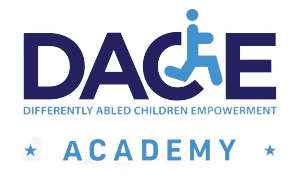
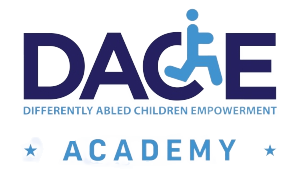
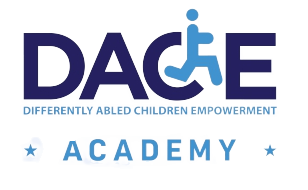
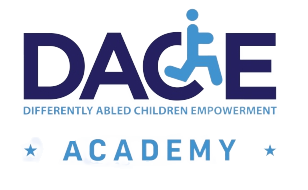
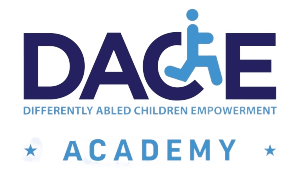
No Comments